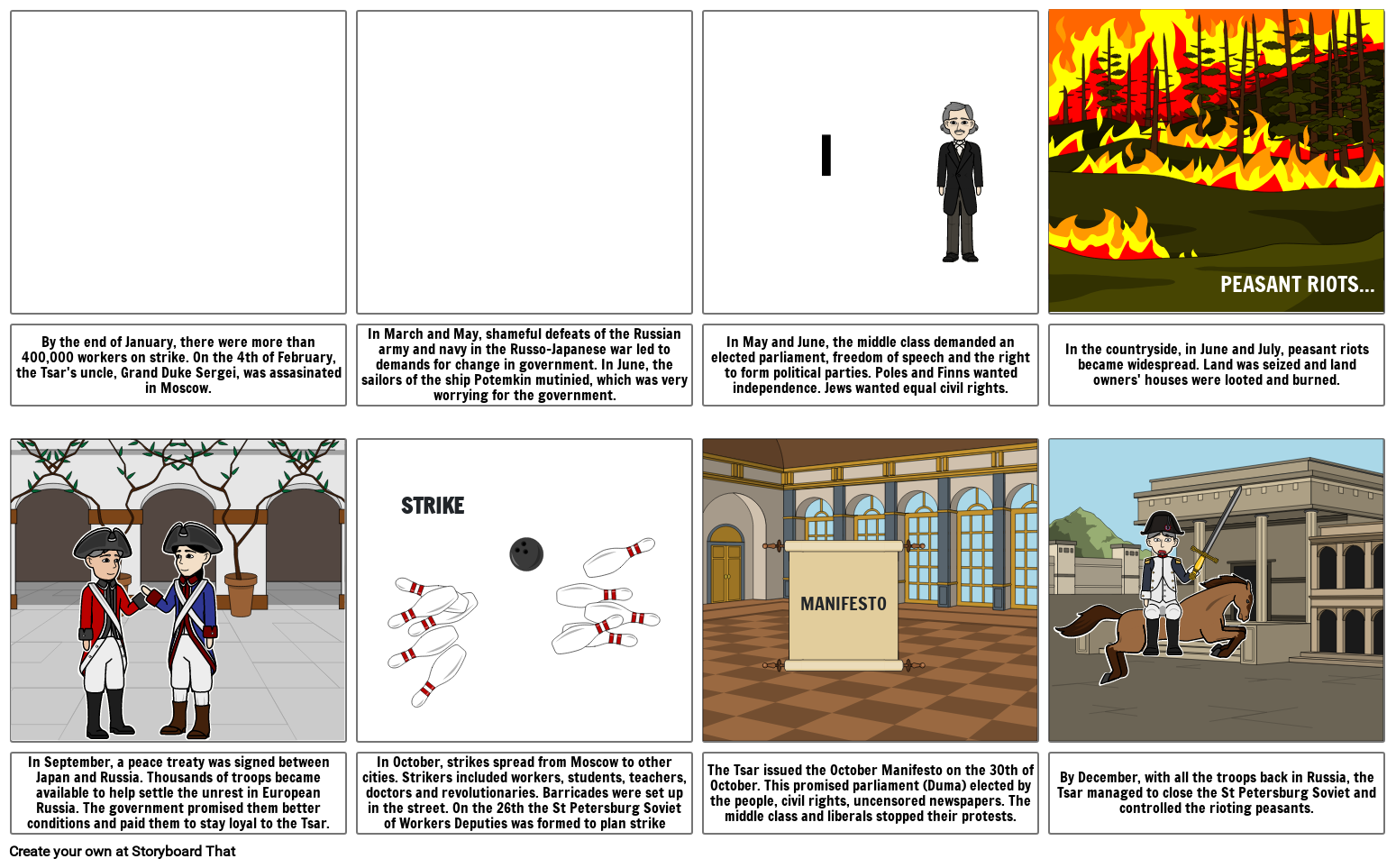Unknown Story

Siužetinės Linijos Tekstas
- PEASANT RIOTS...
- By the end of January, there were more than 400,000 workers on strike. On the 4th of February, the Tsar's uncle, Grand Duke Sergei, was assasinated in Moscow.
- In March and May, shameful defeats of the Russian army and navy in the Russo-Japanese war led to demands for change in government. In June, the sailors of the ship Potemkin mutinied, which was very worrying for the government.
- STRIKE
- In May and June, the middle class demanded an elected parliament, freedom of speech and the right to form political parties. Poles and Finns wanted independence. Jews wanted equal civil rights.
- MANIFESTO
- In the countryside, in June and July, peasant riots became widespread. Land was seized and land owners' houses were looted and burned.
- In September, a peace treaty was signed between Japan and Russia. Thousands of troops became available to help settle the unrest in European Russia. The government promised them better conditions and paid them to stay loyal to the Tsar.
- In October, strikes spread from Moscow to other cities. Strikers included workers, students, teachers, doctors and revolutionaries. Barricades were set up in the street. On the 26th the St Petersburg Soviet of Workers Deputies was formed to plan strike action.
- The Tsar issued the October Manifesto on the 30th of October. This promised parliament (Duma) elected by the people, civil rights, uncensored newspapers. The middle class and liberals stopped their protests.
- By December, with all the troops back in Russia, the Tsar managed to close the St Petersburg Soviet and controlled the rioting peasants.
Sukurta daugiau nei 30 milijonų siužetinių lentelių

